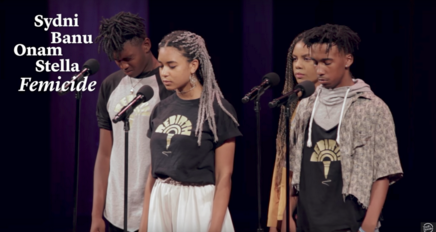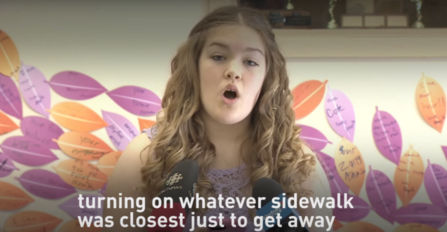Poetry and spoken word about Sexual violence is a way to express pain, passion, anger, and hope to reclaim what has been taken away. Arte Sana, a national Latina-led nonprofit committed to engaging marginalized communities to end sexual violence, says this about using poetry as a tool of activism for SVP:
“Poetry lends itself to writing about trauma because it does not have rules. Poetry does not have to be linear or make chronological sense; therefore, it can encompass any survivor’s reality even if some of her memories are unclear.”
Poetry about SVP is a deeply personal act, and it is an incredible political tool when shared publicly. To learn more about youth using their voices, check out Brave New Voices, as well the spoken word poems below:
Take time to consider and strategize how you can create and foster the safest possible space for young people to feel comfortable, supported and empowered. Not everyone is ready to share a story about their own experiences related to sexual violence. Here are some suggestions for you as you begin to create your group:
-
- Provide resources for folks who might be suffering from experiences related to sexual violence. Distribute a list of phone numbers and websites of places where they can access support and resources.
- Be clear about exactly what the group is and what it is not. Is it an activist group for young people to design action campaigns or a support group for survivors to share stories?
- Articulate community guidelines together. Ask everyone what they need to feel safe and supported. Write down this “community contract,” invite everyone to sign it and post it somewhere visible at every meeting. The list might include suggestions such as:
- speak with “I” statements
- replace judgment with curiosity
- respect where everyone is on their journey
- step up/ step back
- know, respect and name your own boundaries. No one has to share anything they don’t want to share
- practice “calling in” instead of “calling out”
- And unfortunately, spaces that are publicly named and branded in any way as “feminist” or addressing issues related to preventing sexual violence are often trolled by harassers. We highly recommend the resources at HEARTMOB to help you address harassers and support the folks they target.




